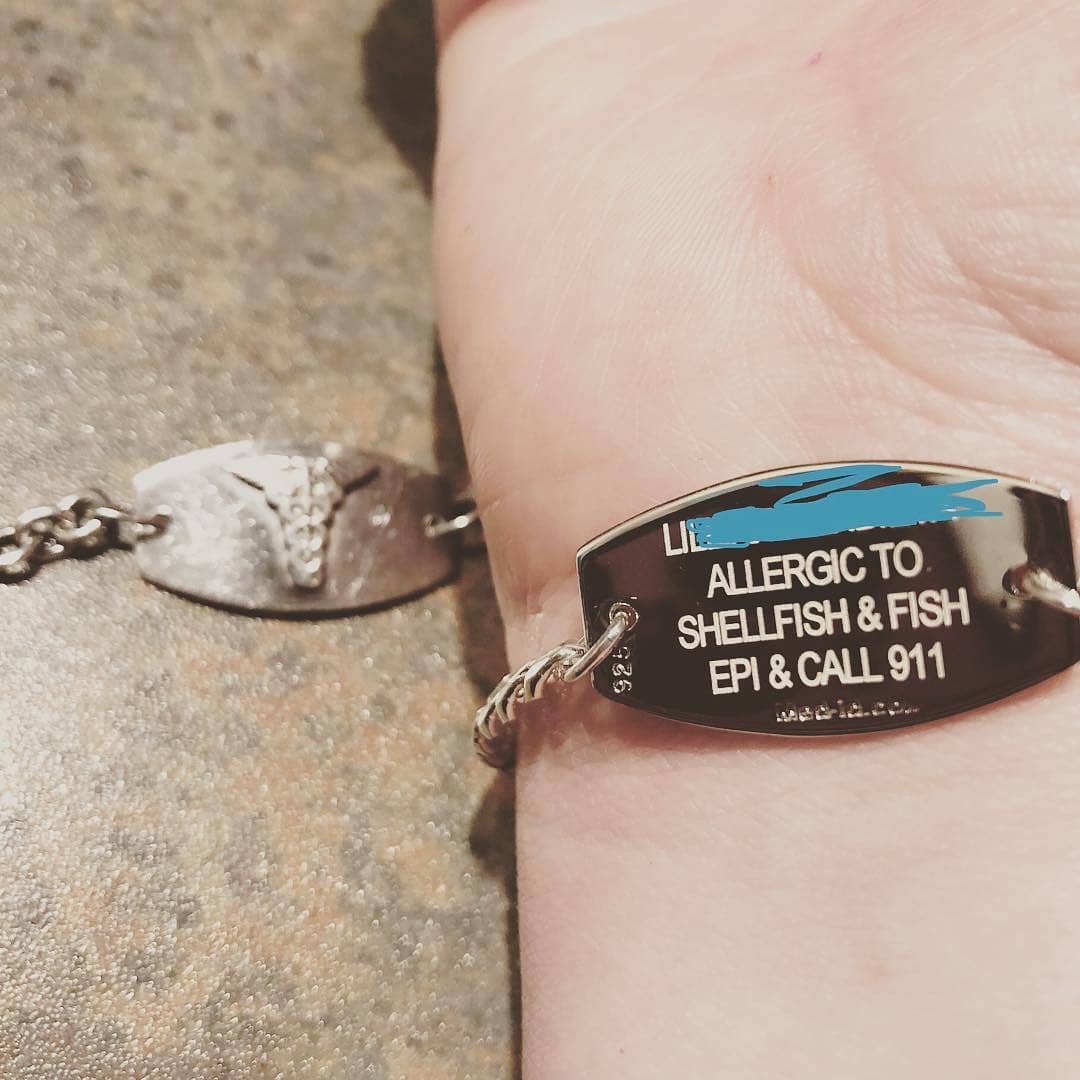Medical IDs are any form of jewelry, such as a bracelet or necklace, that has medical information engraved on it. In emergency situations, paramedics are trained to look for medical IDs which can help them make medical decisions and save lives. One of the most common conditions that require the use of a medical ID is allergies.
Wearing a medical bracelet for allergies can help inform first responders why you are having particular symptoms, can speed up first aid if you are unable to communicate, and can alert paramedics of any drug allergies they might otherwise use for your treatment.
Types of Allergies That Require Medical IDs
Symptoms of allergies can appear suddenly and can quickly turn into a medical emergency. Triggers for allergic reactions include certain foods or substances that are different for every person but can be split into four main types:
- Food allergies, such as peanuts or shellfish
- Drug allergies, such as penicillin or NSAIDs
- Allergies to emergency medical items, including latex and anesthesia
- Allergies to insects, such as bee and wasp stings
If the reaction to the allergen is severe, the immune system can release a flood of chemicals that causes the body to go into shock. First aid may be required or a dose of adrenalin in the form of an EpiPen to reduce the symptoms of the allergic reaction.
A medical bracelet for allergies can explain the trigger for the symptoms and can describe the location of the EpiPen to get help as quickly as possible.
What Information to Include on a Medical ID
Space on a medical ID is limited so it is important to prioritize certain information. Details to engrave on a medical bracelet for allergies include:
- Full name: this allows the hospital to pull your medical history
- Medical Conditions: other diagnoses can impact the treatment provided by first responders and doctors
- Allergies: it is common to inscribe “ALGY” prior to the food or substance you are allergic to, for example, “PCN ALGY” for a penicillin allergy
- Medications: list medications you take and the location of your EpiPen, for example, “PURSE”
- Emergency contact: provide the phone number and name of the person you would like to be contacted in case of an emergency
Medical IDs are a small investment for the potential life-saving benefits received. They increase the likelihood of receiving quality care and give first responders the context needed to save your life.
If you experience allergic reactions, get started designing your own medical ID today!







